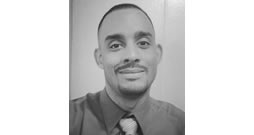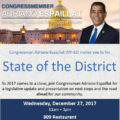Roll to Advocate for Greater Access to Quality Affordable Healthcare, Community Integration and Complex Rehab Technology

JOSE HERNANDEZ is a perfect example of what a person living with a disability is capable of doing with motivation and will. (Wheels of Progress)
NEW YORK, NY /USNewswire/ — United Spinal Association will host Jose Hernandez from the Bronx, New York, at its 6th Annual Roll on Capitol Hill, June 11-14 in Washington, D.C., to speak directly with legislators on issues that affect the independence and quality of life for people with spinal cord injuries and disorders (SCI/D) and other pre-existing conditions.
Hernandez, 36, a peer mentor, disability advocate and power wheelchair user, will be attending Roll on Capitol Hill along with other prominent disability advocates. He will urge his representatives to provide people living with spinal cord injuries and disorders in New York greater access to community integration and complex rehab technology.
Complex rehab technology includes medically necessary mobility equipment that requires extensive evaluation, configuration, fitting, adjustment, or programming, such as wheelchairs.
“Wheelchairs may all fall under a certain category, but there is no one size fits all wheelchair,” said Hernandez, who was spinal cord injured at age 15 and earned an Associate’s degree in Information Technology from Bronx Community College and a Bachelor’s degree in Computer Science from St. John’s University.
“A regular wheelchair that is used in a hospital to transport patients for example is not a good wheelchair for tetraplegics with limited strength, dexterity and balance, which can leave the person with a disability susceptible to pressure ulcers and other serious complications due to improper fitting,” explained Hernandez.
Hernandez has used his experiences conquering the hurdles of living with a disability, to mentor others with SCI/D, including those in nursing homes who are trying to reintegrate into their communities.
“After sustaining a spinal cord injury, you’re going to have a hard enough time adjusting to your new body and in a lot of cases these individuals are being placed into nursing homes,” said Hernandez.
Now working as a Program Specialist with United Spinal Association, Hernandez looks forward to helping more individuals with SCI/D on a national scale.
“There are so many people with spinal cord injuries and other disabilities that don’t have a voice. If I can I will share my voice with all of them,” he said.
On the state level, Hernandez also dedicates time advocating to improve in-home treatment and care for others living with SCI/D, recently meeting with senators and congressmen to urge higher minimum wage of home care workers in New York. Currently the minimum wage for home care workers is $11 per hour, which is the state minimum.
The road to self-advocacy started early on for Hernandez as he sought answers to the new challenges he faced living with tetraplegia and having to use a wheelchair.
“I had a lot of government agencies telling me how I should live my life. Not knowing any better, you go along believing that they have your best interests at hand — but they don’t. That’s when I decided to start helping individuals with disabilities with my first-hand knowledge of advocacy,” explained Hernandez.
Roll on Capitol Hill has been a life-changing event for Hernandez. Now entering its 6th year, the Roll has become a valuable platform for United Spinal member advocates to lead the charge to protect disability rights.
“I remember my first Roll on Capitol Hill. As I stood outside the reception door, looking inside at all of the people attending — fighting for what they believe in and representing thousands of individuals with disabilities, I couldn’t help but get emotional,” recalled Hernandez.
Beyond community integration and complex rehab technology, Hernandez is concerned with the potential impact of the Affordable Care Act (ACA) repeal.
“The current administration should invest time and energy in repairing or restructuring a system that has been working and getting people healthier, rather than replacing it with something that would be a death sentence for many individuals,” said Hernandez.

















Follow Us